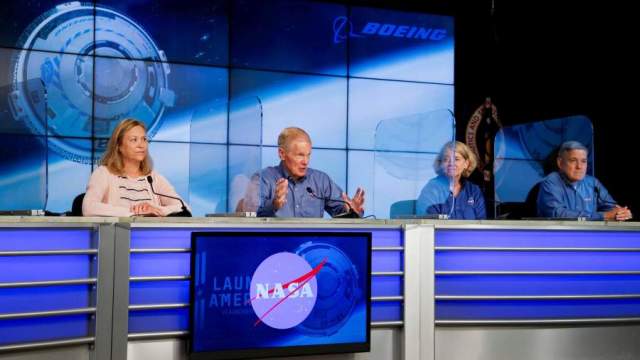The head of NASA, Bill Nelson, during the conference on the operation of the International Space Station (ISS), said that the addition of the Russian module "Science" to the ISS will contribute to the development of cooperation between the Russian Federation and the United States.
"The successful addition of a multi-purpose laboratory module will contribute to the continuation of our cooperation with the Russians. I'm excited about what the future holds for us: "Science and the European robot manipulator will help to make even more discoveries, valuable both for life on Earth, and taking into account our progress into space and to Mars," Nelson said on Tuesday, August 3.
According to him, last week, the space agencies of both countries had to go through "a little unplanned excitement" when an incident related to "Science"occurred.
In direct interaction with each other, Russian and American specialists managed to quickly restore the orientation of the ISS and ensure the safety of the crew, Nelson said.
Earlier, on July 29, the module "Science", intended for the implementation of the Russian program of scientific and applied research and experiments, docked to the ISS.
Russian cosmonaut Oleg Novitsky on board the ISS informed the specialists of the Moscow Mission Control Center (MCC)about the unplanned engines of the module. Later, the astronauts managed to turn them off.
According to the head of the flight of the Russian segment of the ISS, Vladimir Solovyov, the sudden activation of the engines of the Nauka module occurred due to a short-term software failure. This situation was quickly countered with the help of the engines of the Zvezda module, he added.
On August 1, the flight director of the American segment of the ISS, Zebulon Scoville, reported that the ISS made almost one and a half turns during this incident. According to NASA estimates, due to the unexpected activation of the engines on the Nauka module, the ISS turned 45 degrees.
Initially, the launch of the Nauka module to the ISS was planned in 2007, but it was postponed many times due to lack of funds for its construction or for other reasons.
The module is intended for the implementation of the Russian program of scientific and applied research and experiments. In April, Roscosmos said that thanks to the Nauka module, it will be possible to conduct experiments in outer space without leaving the station, and an additional cabin for an astronaut will also appear.

